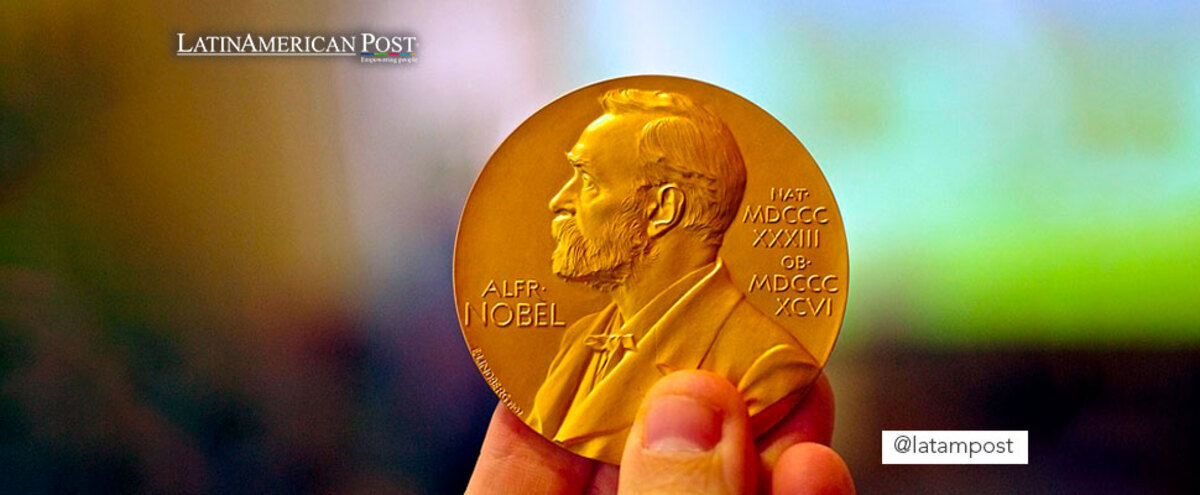Nobel Prize Winners: Not Very Diverse or a Reflection of Society?
Of the 2022 winners, 10 white men won the Nobel Prize, compared to just 2 women (literature and chemistry) and no people of color .

Photo: Flickr-Adam Baker
LatinAmerican Post | Santiago Gómez Hernández
Listen to this article
Leer en español: Premios Nobel: ¿Poco diversos o un reflejo de la sociedad?
The debate about the lack of diversity and inclusion in the Nobel Prize winners is not new. For several years, the hegemony of white men in the awards has been questioned . If it is true that there are some awards with greater diversity than others, the trend of recent years continues to tilt the balance so that the winner or winners of each year are mostly white men from the global north.
This year was not the exeption. All 3 Physics prize winners, 2 of 3 Chemistry prize winners, Medicine prize winner, 3 Economics prize winners, and 1 of 3 Nobel Peace Prize winners were white males. All 10 were either European or North American. But this is not all, the only two women were also white and from the global north, while the remaining 2 Peace Prize winners of 2022 were organizations.
No man or woman from the global south was awarded this year, an event that had not occurred since 2020. However, that year an organization, 7 men, and 4 women were awarded, twice as many women as in 2022. The problem of discrimination, despite being evident in all categories, it is concentrated on a greater extent in the Medicine, Economics, Physics, and Chemistry awards. While in the Peace and Literature awards, there is greater inclusion.
Also read: Infographics: What Is In the Ukrainian Territories Annexed by Russia?
Nobel Prize in Economics
Over the last 10 years, since 2012, 21 white men from the global north have received the Nobel Prize in Economics, while only 1 woman, Esther Duflo (France), and one man from the global south, Abhijit Banerjee (India), were awarded in 2019.
Nobel Prize in Physics
From 2012 to 2022, 23 men born in the United States or Europe (plus one Japanese-American) have been awarded the prize in Physics. In comparison, in the same period, only 2 women : Andrea Ghez (USA) and Donna Strickland (Canada) received this award. Additionally, 4 Japanese men have also been the award-winning physicists.
You have to go back to 1983 to find the first person from the global south to win this award: Subrahmanyan Chandrasekhar from India. But no non-European or North American woman has ever won in this category. The same award that Marie Curie won in 1903 for her joint research on radioactivity. Only 4 women in history.
Nobel Prize in Chemistry
Although this Nobel Prize in Chemistry has greater diversity than those in Physics, Medicine or Economics, it is still far from complete equity, even if it is gender. Since 2012, 26 men (only 1 Japanese) and 4 women have won this award. 3 of the last 7 winners have been women, 7 in all history.
This, even in the award that Marie Curie once received in 1911 for her discovery of Radium and Polonium; and her daughter, Irène Joliot-Curie, for the synthesis of radioactive elements in 1935.
Nobel Prize in Medicine
In the last 10 years, 19 white men (plus one Lebanese American), 4 Southeast Asian men (4 Japan), and only 2 women (May Britt-Moser from Norway in 2014 and Tu Youyou from China in 2015) have been awarded.
The percentage of women awarded is only a very small proportion, with a more even reality. According to OECD figures in 2015, the average number of women doctors was 46% in its member countries. However, in the countries that have won the award the most, the United States, the United Kingdom, Germany and France, the proportion of women is still less than 50% and only countries such as Latvia, Estonia, and Spain have more female doctors. These last 3 countries represent only 2 awards in this category, both from Spain.
Nobel Prize for Literature
This 2022, this was the only Nobel Prize won by a solo woman. Annie Ernaux was highlighted for her work, which autobiographical way dimensions politics in privacy. But Ernaux's case is no stranger to the award. In the last 10 years, 4 white women have received this distinction; for their part, an African, a Chinese, and a Japanese have also been awarded. Only 3 white men were noted for their lyrics in this decade.
A total of 16 women in history have won the literature prize. This is the second Nobel with the largest number of women, only behind that of Paz. In addition, Gabriela Mistral (Latin, Chilean) and Nadine Gordimer (South Africa) stand out as winners.
Nobel Peace Prize
Traditionally, the award with the highest participation of women. Since 2011, 6 women (all from the global south) have won this distinction. For their part, 2 African men, 1 Latino (Juan Manuel Santos) and 1 Indian, have also stood out among the recent winners.
The absence of women from the global south in prizes such as Physics, Chemistry, Medicine, and Economics demonstrates a lack of inclusion, not only in the laureates, but in the scientific community. The lack of opportunities for women of color and developing countries to distinguish themselves from their white female counterparts and, of course, from men, remains immense.
Access to indexed journals, lack of investment in universities in the south, and even language barriers, may also be a reflection of an unequal and sexist society; and the causes of the lack of diversity in the most important prizes in science. Although the Norwegian Nobel Committee is not responsible for these inequalities, it is necessary that they encourage the participation of the global south academy to reduce the gap between developed and developing countries in the academic world.




